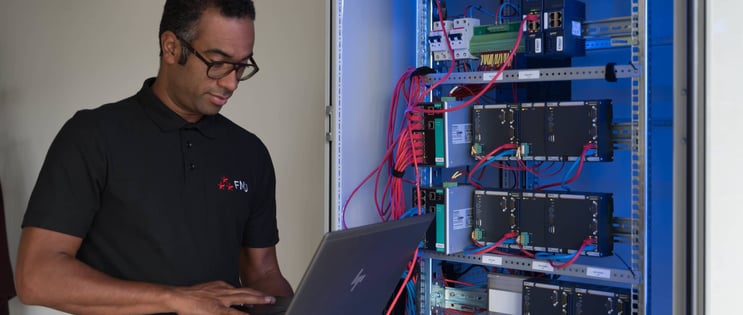Skills for Automation Engineer
3/18/20243 min read


Skills for an automation engineer
PLC (Programmable Logic Controller) programming and control engineering is a specialised discipline within the field of industrial automation. Engineers in this area are responsible for designing, implementing and maintaining automated control systems in various sectors, such as manufacturing, energy and home automation.
Technical skills
To succeed as an automation engineer in PLC programming and control engineering, a strong technical skill set is essential. These skills include:
Solid knowledge of electronics and electricity: A good understanding of the basic principles of electronics and electricity is critical to understanding the operation of automated control systems.
Knowledge of PLC programming: Automation engineers should be familiar with PLC-specific programming languages such as ladder logic, structured text or function block diagram. These languages allow programming and controlling the behaviour of programmable logic controllers.
Control system design experience: Automation engineers must be able to design efficient and reliable control systems. This involves understanding the system requirements, selecting the appropriate components and designing the control logic.
Industrial communication skills: Automated control systems are often interconnected through industrial networks. Therefore, it is important to have knowledge of industrial communication protocols, such as Modbus, Profibus or Ethernet/IP.
Troubleshooting skills: Automation engineers must be skilled at identifying and troubleshooting problems in control systems. This involves having a good understanding of control principles and being able to analyse and debug PLC programs.
Required software programmes
In addition to the technical skills mentioned above, automation engineers in control engineering and PLC programming must also be familiar with various software programs used in the industry. Some of the required software programs include:
PLC programming software: Automation engineers must be knowledgeable in the software used to program program programmable logic controllers. Examples of PLC programming software include Siemens TIA Portal, Rockwell RSLogix 5000 and Schneider Unity Pro.
Simulation software: The use of simulation software allows engineers to test and debug PLC programs before implementing them in the real system. Common simulation programs include Siemens PLCSim, Rockwell Emulate and Schneider PL7 Pro.
Control system design software: To design efficient control systems, automation engineers can use specialised design software. Examples of control system design software include Siemens S7-GRAPH, Rockwell Studio 5000 and Schneider Vijeo Citect.
Monitoring and supervisory software: To monitor and supervise automated control systems, engineers can use monitoring and supervisory software. Examples of monitoring and supervision software include Siemens WinCC, Rockwell FactoryTalk View and Schneider Wonderware.
Resource management
In addition to technical skills and knowledge of software programs, automation engineers in control engineering and PLC programming must also have resource management skills. This involves the ability to efficiently manage available resources such as time, personnel and materials.
Some resource management skills that are important for an automation engineer include:
Planning and organisation: Automation engineers must be able to efficiently plan and organise their tasks and projects. This involves setting priorities, allocating resources and establishing realistic deadlines.
Effective communication: Effective communication is essential to coordinate and collaborate with other team members. Automation engineers must be able to communicate clearly, both verbally and in writing.
Time management: Time management is crucial to meeting deadlines and delivering projects in a timely manner. Automation engineers must be able to prioritise tasks, avoid procrastination and be efficient in their use of time.
Leadership: In some cases, automation engineers may lead teams. Therefore, it is important to have leadership skills, such as the ability to motivate and guide other team members.
Conclusion
Being an automation engineer in control engineering and PLC programming requires a combination of technical skills, software knowledge and resource management skills. Engineers in this area should have a good understanding of the principles of electronics and electricity, as well as experience in PLC programming and control system design. In addition, they must be familiar with the software programs used in the industry and have the resource management skills to carry out projects efficiently.
Contact
adriandiago_97@hotmail.com
